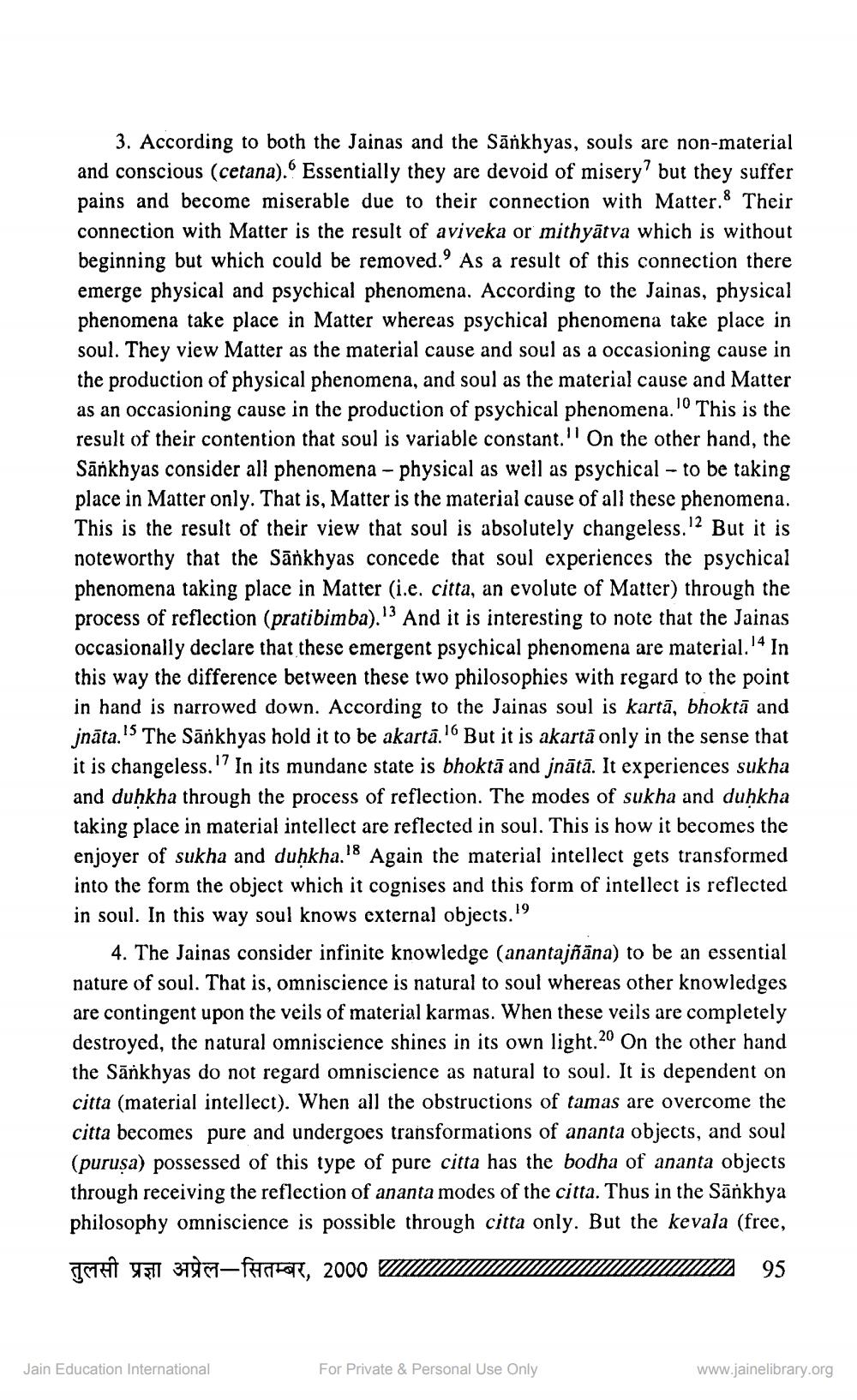________________
3. According to both the Jainas and the Sankhyas, souls are non-material and conscious (cetana). Essentially they are devoid of misery but they suffer pains and become miserable due to their connection with Matter. Their connection with Matter is the result of aviveka or mithyātva which is without beginning but which could be removed. As a result of this connection there emerge physical and psychical phenomena. According to the Jainas, physical phenomena take place in Matter whereas psychical phenomena take place in soul. They view Matter as the material cause and soul as a occasioning cause in the production of physical phenomena, and soul as the material cause and Matter as an occasioning cause in the production of psychical phenomena. 10 This is the result of their contention that soul is variable constant." On the other hand, the Sankhyas consider all phenomena - physical as well as psychical - to be taking place in Matter only. That is, Matter is the material cause of all these phenomena. This is the result of their view that soul is absolutely changeless. 12 But it is noteworthy that the Sankhyas concede that soul experiences the psychical phenomena taking place in Matter (i.e. citta, an evolute of Matter) through the process of reflection (pratibimba).13 And it is interesting to note that the Jainas occasionally declare that these emergent psychical phenomena are material.14 In this way the difference between these two philosophies with regard to the point in hand is narrowed down. According to the Jainas soul is kartā, bhoktā and jnāta.15 The Sankhyas hold it to be akartā.1 But it is akarta only in the sense that it is changeless. In its mundane state is bhoktā and jnātā. It experiences sukha and duḥkha through the process of reflection. The modes of sukha and duḥkha taking place in material intellect are reflected in soul. This is how it becomes the enjoyer of sukha and duḥkha.18 Again the material intellect gets transformed into the form the object which it cognises and this form of intellect is reflected in soul. In this way soul knows external objects. 19
4. The Jainas consider infinite knowledge (anantajñāna) to be an essential nature of soul. That is, omniscience is natural to soul whereas other knowledges are contingent upon the veils of material karmas. When these veils are completely destroyed, the natural omniscience shines in its own light.20 On the other hand the Sankhyas do not regard omniscience as natural to soul. It is dependent on citta (material intellect). When all the obstructions of tamas are overcome the citta becomes pure and undergoes transformations of ananta objects, and soul (purusa) possessed of this type of pure citta has the bodha of ananta objects through receiving the reflection of ananta modes of the citta. Thus in the Sankhya philosophy omniscience is possible through citta only. But the kevala (free,
तुलसी प्रज्ञा अप्रेल - सितम्बर, 2000 IUM
95
Jain Education International
For Private & Personal Use Only
www.jainelibrary.org




